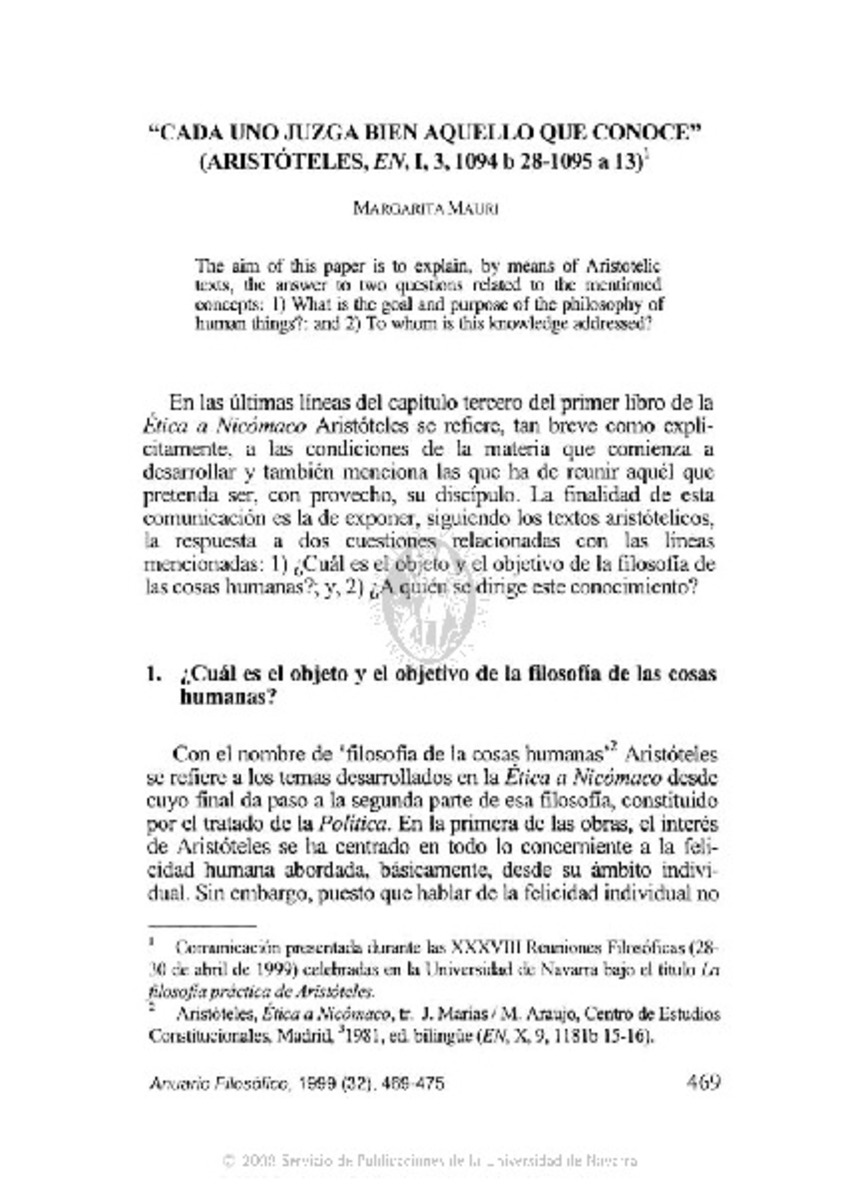Full metadata record
| DC Field | Value | Language |
|---|---|---|
| dc.creator | Mauri-Alvarez, M. (Margarita) | es_ES |
| dc.date.accessioned | 2004-11-26T16:49:06Z | es_ES |
| dc.date.accessioned | 2007-03-08T16:39:07Z | - |
| dc.date.available | 2004-11-26T16:49:06Z | es_ES |
| dc.date.available | 2007-03-08T16:39:07Z | - |
| dc.date.issued | 1999 | es_ES |
| dc.identifier.citation | Anuario Filosófico, 1999 (32), 469-475 | es_ES |
| dc.identifier.issn | 0066-5215 | es_ES |
| dc.identifier.uri | https://hdl.handle.net/10171/406 | - |
| dc.description.abstract | The aim of this paper is to explain, by means of Aristotelic texts, the answer to two questions related to the mentioned concepts: 1) What is the goal and purpose of the philosophy of human things?: and 2) To whom is this knowledge addressed? | es_ES |
| dc.format.extent | 135680 bytes | es_ES |
| dc.format.extent | 135680 bytes | - |
| dc.format.extent | 27614 bytes | - |
| dc.format.extent | 1892 bytes | - |
| dc.format.mimetype | application/msword | es_ES |
| dc.format.mimetype | application/msword | - |
| dc.format.mimetype | application/pdf | - |
| dc.format.mimetype | text/plain | - |
| dc.language.iso | spa | es_ES |
| dc.rights | info:eu-repo/semantics/openAccess | es_ES |
| dc.subject | Aristóteles | es_ES |
| dc.subject | Praxis | es_ES |
| dc.subject | Conocimiento | es_ES |
| dc.title | Cada uno juzga bien aquello que conoce | es_ES |
| dc.type | info:eu-repo/semantics/article | es_ES |
| dc.identifier.doi | 10.15581/009.32.29584 | es_ES |
Files in This Item:
Statistics and impact
Items in Dadun are protected by copyright, with all rights reserved, unless otherwise indicated.






